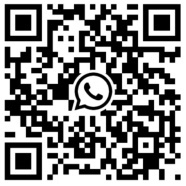Radiation Lead Screens: The Essential Shield for Modern Radiation Protection
Aug 08,2025
In today's radiation-intensive work environments, from hospital radiology departments to industrial testing facilities, radiation lead screens have become an indispensable safety component. These specialized barriers provide essential protection against harmful ionizing radiation while maintaining visibility of procedures. With global radiation safety regulations becoming increasingly stringent, the market for advanced radiation lead screens is experiencing significant growth, projected to reach $850 million by 2026 according to recent industry reports.
The Science Behind Radiation Lead Screens
Radiation lead screens work by utilizing the high atomic number (82) and density of lead to absorb and scatter ionizing radiation. Modern designs incorporate:
Multi-layered protection: Combining lead with other high-Z materials
Optimized thickness: Typically 0.5mm to 3.0mm lead equivalency
Advanced viewing windows: Lead-impregnated glass or acrylic
Recent studies show that properly installed radiation lead screens can reduce operator exposure by up to 98% compared to unprotected workstations.
Industry Applications and Use Cases
Healthcare Sector Applications
Radiology departments: Protecting technologists during X-ray procedures
Interventional suites: Shielding surgical teams during fluoroscopy
Dental practices: Operator protection with lead glass screens
Industrial and Research Applications
Non-destructive testing (NDT) facilities
Security screening stations
Nuclear research laboratories
Technical Specifications and Performance Standards
Modern radiation lead screens must meet rigorous performance criteria:
Radiation attenuation: Minimum 90% reduction at typical operating voltages
Durability: Rated for 100,000+ operational cycles
Visibility: Optical clarity >85% through viewing windows
Mobility: Smooth operation for mobile units
Installation and Maintenance Best Practices
Proper installation of radiation lead screens requires:
Site assessment: Radiation mapping and workflow analysis
Professional installation: Certified technicians only
Post-installation testing: Radiation leakage surveys
Maintenance protocols should include:
Monthly visual inspections
Quarterly seal integrity checks
Annual professional radiation testing
Emerging Technologies and Future Trends
The radiation lead screen industry is evolving with several key innovations:
Smart shielding systems with integrated dosimeters
Lightweight composite materials reducing weight by 30%
Self-cleaning surfaces for infection control
Modular designs allowing flexible configurations
Conclusion: Investing in Quality Radiation Protection
Radiation lead screens represent a critical investment for any facility using ionizing radiation. By selecting screens with:
✔ Appropriate lead equivalency
✔ Durable construction
✔ Advanced safety features
✔ Compliance certifications
Organizations can ensure:
Complete regulatory compliance
Optimal staff protection
Long-term operational efficiency
As radiation technologies advance, radiation lead screens will continue to play a vital role in workplace safety protocols.
Key Takeaways
• Radiation lead screens provide essential protection in medical and industrial settings
• Modern designs combine safety with operational efficiency
• Proper installation and maintenance are crucial for effectiveness
• Emerging technologies promise even better protection
• Compliance with international standards is mandatory
Selection Guide
When choosing radiation lead screens, consider:
Your specific radiation protection needs
Workflow requirements
Available space and configurations
Budget and lifecycle costs
Manufacturer certifications and warranties
Previous page: None
Next page: How Radiation Lead Screens Enhance Safety and Compliance in High-Risk Environments
View News About Industry
Aug 08,2025
Radiation Lead Screens: The Essential Shield for Modern Radiation Protection
Aug 08,2025
How Radiation Lead Screens Enhance Safety and Compliance in High-Risk Environments
Aug 01,2025
Radiation Lead Screen: Essential Protection for Modern Medical and Industrial Facilities


